The #1 Reason you are still sick: Hyper-individualism in wellness

Hyper-individualism in Wellness: Is It Helping or Hurting Your Health?
In the evolving landscape of wellness, hyperindividualism has emerged as a dominant trend, emphasizing personal autonomy, self-reliance, and customized health practices like biohacking, personalized diets, and solo self-care routines. It shows up in this like self-care, fill your cup first, you can't pour from an empty cup, put on your oxygen mask first teachings. While this approach promises empowerment and optimal health, it often overlooks the community aspects of well-being, leading to isolation, burnout, and exacerbated symptoms like fatigue, anxiety, and hormonal imbalances. Drawing from discussions in wellness circles, I want to explore the rise of hyperindividualism, its impacts on physical and mental health, and the need for a balanced approach that integrates community and root causes. We'll incorporate supporting research and insights to provide a comprehensive view.
Defining Hyperindividualism in Wellness
Hyperindividualism refers to an extreme focus on individual autonomy and self-reliance, often at the expense of community and collective responsibility. In the wellness industry, this manifests as hyper-personalized regimens, think DNA-based nutrition plans, individualized supplement stacks, new morning routines like meditating in the quiet or solo biohacking gadgets, that prioritize "self-optimization" over shared experiences. This shift is amplified by social media and digital culture, where personal branding and self-presentation take center stage. The appeal is clear: It empowers individuals to take control in a world where systemic issues like healthcare access feel overwhelming. This can be a good thing when we coordinate with strong community care.
However, this mindset can devolve into toxic self-care, where prioritizing oneself excludes healthy relationships and societal contributions. As one analysis notes, wellness culture's emphasis on "personal freedom and personal knowledge" converges with hyperindividualism, rejecting collective narratives in favor of isolated pursuits.
The Downsides: Isolation, Burnout, and Health Impacts
One major drawback is the erosion of social ties, leading to increased loneliness, a key factor in mental health decline. Research shows that hyperindividualism contributes to rising social isolation, with consequences like higher rates of anxiety and depression. In wellness contexts, this isolation manifests when individuals opt out of community for "protected peace," ignoring that humans are social creatures who thrive on co-regulation and support.
Physically, hyperindividualism can worsen symptoms like fatigue and hormonal imbalances. Chronic pursuit of "perfect" health through solo practices often amplifies stress, dysregulating cortisol and sex hormones. A hyper-individualized culture shifts systemic burdens (e.g., pollution, food quality) onto individuals, fostering anxiety without addressing root causes. For instance, wellness quacks and influencers promote alternatives that undermine science, monetizing conspiracism while ignoring communal health solutions.
Studies link individualism to wellbeing, but in hyper forms, it weakens associations between wellbeing and health outcomes, as collective support buffers stress. In fitness, hyperindividualism pushes meritocracy, leading to burnout without group accountability.
Balancing Individual and Collective Wellness
To counter this, integrate community as "medicine." Social connections enhance resilience, hormone balance, and mental health. Start with foundations like gut health and neurotransmitters before hyper-personalized fixes, and embrace relational work over isolation. Practical tips include auditing routines for overload, joining wellness groups, and prioritizing interdependence for true healing.
As one expert notes, deconstructing hyperindividualism's narratives is key to generative well-being. By blending personal autonomy with communal support, we can achieve sustainable health.
Works Cited
- [0] Hyperindividualism and Self Identity in the West. Medium. https://medium.com/%40zduncan/hyperindividualism-and-self-identity-in-the-west-cd64c08c7947
- [1] The Growth of Hyper-individualism in Western Society. Inspire the Mind. https://www.inspirethemind.org/post/the-growth-of-hyper-individualism-in-western-society
- [2] Hyperindividualism - Definition and Explanation. Oxford Review. https://oxford-review.com/the-oxford-review-dei-diversity-equity-and-inclusion-dictionary/hyperindividualism-definition-and-explanation/
- [5] The Problem of Hyper-Individualism. City Journal. https://www.city-journal.org/article/the-problem-of-hyper-individualism
- [6] Self-Care or Selfish? How Individualism Isolates Us. Just N Life. https://justnlife.com/self-care-or-selfish-how-individualism-isolates-us/
- [7] How Hyper-Individualistic Self-Care Culture Has Lost Its Way. Medium. https://medium.com/%40amber_wardell/how-hyper-individualistic-self-care-culture-has-lost-its-way-4b4b9a097b0d
- [8] How Hyper-Individualism is Making Us Ill. Modern Courage. https://www.moderncourage.com/blog/how-hyper-individualism-is-making-us-ill
- [10] How Hyper-Individualistic Self-Care Culture Has Lost Its Way. Medium. https://medium.com/%40amber_wardell/how-hyper-individualistic-self-care-culture-has-lost-its-way-4b4b9a097b0d
- [11] What Are the Downsides of a Hyper Individualized Wellness Culture? Sustainability Directory. https://lifestyle.sustainability-directory.com/question/what-are-the-downsides-of-a-hyper-individualized-wellness-culture/
- [13] The interaction between individualism and wellbeing in predicting... PMC. https://pmc.ncbi.nlm.nih.gov/articles/PMC5765189/
- [14] The Dangers of Hyper-Individualism in Fitness. LinkedIn. https://www.linkedin.com/pulse/dangers-hyper-individualism-fitness-blair-simpson-wise?trk=public_post
- [21] Discover how hyper-individualism impacts mental health... The Road to Mental Wellness. https://theroadtomentalwellness.wordpress.com/2025/05/29/hyper-individualism-and-mental-health/
- [24] What isn’t self-care & wellness. X.com. https://x.com/SwaySalomeh/status/1767994178238022082
- [37] The wellness industry is the monetization of medical conspiracism. X.com. https://x.com/dr_andrealove/status/1868132019114594307

